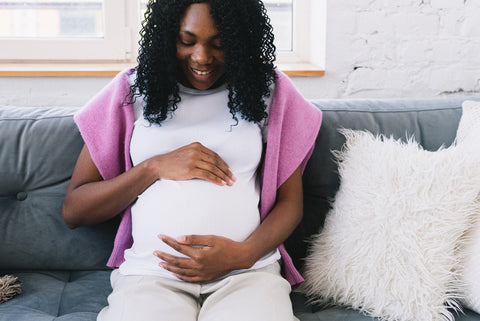How to Keep in Shape During Pregnancy
What do exercise and muscle have to do with pregnancy and birth? Probably a lot more than you realize. Read on for complete details.
Congratulations! So you are planning on having a baby.

The happy expectant prenatal period of a woman's life need not to be a period of passiveness. In fact, just the opposite should be true.
The mother-to-be, whether it is for the first or the fifth time should be in the best of health in order to enjoy her normal recreational endeavors and continue her daily activities. This is the time when a woman should pay the most attention to exercise.
There are many good reasons why exercise is important during pregnancy. All of them center around the basic relationship between exercise and muscle. Simply stated, the relationship is as follows: muscles, the flexibility of muscles, and the tone of the muscles as well as the body's heart-circulatory efficiency.
Birth involves the relaxation and contraction of many major muscle groups (the uterus, abdominal, buttock, thigh). If these muscles are in good condition, you will have an easier time at birth. Also, you will feel and look better, before and after the baby is born.
Prior to birth, especially during the last trimester, there is extra stress and strain on certain muscles. For example toward the end of pregnancy, many women tilt their pelvis area forward and bend the upper part of their bodies backward to compensate for the weight of the heavy uterus. As a result, backbone frequently develops. As breasts become larger, additional stress is placed on the underlying support muscles: the chest (pectoralis major), the shoulder (deltoid), and even the upper back (trapezius).
The increasing needs of pregnancy put an added burden on a mother's heart. Proper exercise can increase your heart's efficiency.
There is also a slowing of the blood flow in the lower extremities during pregnancy. Many times this can cause stagnation of the blood in the legs which leads to varicose veins. Exercise will improve your circulation.
Pregnancy also disturbs the gastrointestinal tract. This can result in constipation and hemorrhoids. Proper exercise can assist by providing tone and massage to the intestinal tract.
Exercise cause your body to burn calories at a higher than normal rate. Thus, you can consume more nutritious food and still not add excess body fat.
If you establish sensible exercise habits during pregnancy, they will carry over into your everyday lifestyle. Hopefully, these habits will provide positive examples for your children to follow.
EXERCISE: WHAT KIND? HOW MUCH?
While pregnancy and birth involve most muscle groups to some degree, the primary muscles affected are the abdominals, buttocks, lower back, and chest. Special attention should be given to these areas. But, at the same time, your other muscle groups (thighs, calves, shoulders, upper back, and arms) should not be neglected.
The recommended exercises are divided into two groups. The first group is done with equipment that is frequently found in athletic clubs or training centers. The second group is composed of barbell and free-hand exercise.
Nautilus Machine Exercise
- Hip and Back
- Leg Extension
- Calf raise on Multi-Exercise
- Pullover
- Rowing
- Double chest
- Negative-accentuated sit-up
Barbell/Free-hand Exercises
- Wide squat
- Pelvic raise
- Calf raise
- Pullover
- Shoulder shrug
- Bench press
- Negative-accentuated sit-up
Properly performed, you can get good results from the barbell and free-hand exercises. But you get much better results from using the Nautilus machine. The Nautilus machines are scientifically designed to provide full-range exercises.
HOW MUCH?
Make sure you are working with a fitness professional trained in this field and have acquired clearance from your physician before beginning any exercise program. The trained fitness professional is able to adjust your training FIIT accordingly to your health profile which will change as your pregnancy develops.
Check out the next blog on the most frequently asked questions on how to keep in shape during pregnancy.
Reference:
Darden, E. "How to Keep in Shape During Pregnancy". Especially for Women, Leisure Pressure, 1977, 127-131.
